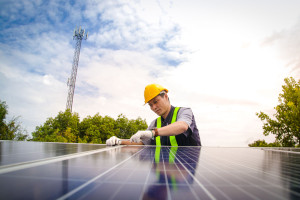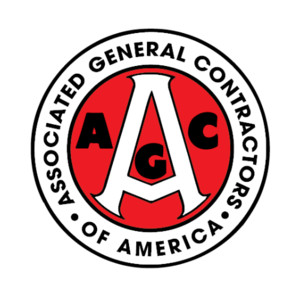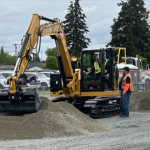Navigating the Future: Embracing Sustainability in Washington’s Construction Industry
 As a steadfast advocate for the construction community in Washington State, AGC of Washington recognizes the pivotal role of sustainability in shaping the future of our industry. Our commitment to fostering a sustainable construction environment is not only a reflection of our dedication to the environment but also an acknowledgment of its increasing importance to our members, their clients, and society at large.
As a steadfast advocate for the construction community in Washington State, AGC of Washington recognizes the pivotal role of sustainability in shaping the future of our industry. Our commitment to fostering a sustainable construction environment is not only a reflection of our dedication to the environment but also an acknowledgment of its increasing importance to our members, their clients, and society at large.
Sustainability in construction goes beyond the mere incorporation of green materials or technologies. It encompasses a holistic approach that addresses environmental, economic, and social concerns, ensuring that the projects we undertake today do not impede the ability of future generations to meet their own needs. It’s our responsibility to act as stewards of the resources entrusted to us, and in doing so, we firm up the foundation for lasting industry success.
The Pillars of Sustainable Construction in Washington State
Washington’s natural beauty is unparalleled, with its lush forests, towering mountains, and vibrant communities. Protecting this heritage while fostering growth necessitates a balanced approach to construction practices. At AGC of Washington, we align with three core pillars: environmental stewardship, economic vitality, and social responsibility.
Environmental Stewardship demands that we construct with minimal impact on our surroundings. This involves the adoption of cutting-edge technologies and methodologies, such as energy-efficient designs, waste reduction practices, and water conservation strategies. It’s about building smarter, not just for today but for the long-term health of our environment.
Economic Vitality is achieved by integrating sustainability into the very fabric of our projects, driving innovation, and opening markets for green materials and technologies. Sustainable practices can lead to cost savings, improved efficiency, and enhanced project value, thus ensuring that our industry remains competitive and resilient in the face of changing market demands.
Social Responsibility underscores the importance of creating spaces that enhance the well-being of their inhabitants and the broader community. From ensuring fair labor practices to enhancing safety and inclusivity, it’s about building a legacy of positive impact that extends beyond the construction site.
The Road to Sustainable Construction
Embracing sustainability is not without its challenges, yet AGC of Washington is here to pave the way for our members. Our organization offers a wealth of resources, including training programs, guidance on best practices, and networking opportunities with peers and experts in the field. We advocate for policies that support sustainable growth, work to enhance the availability of green materials and technologies, and strive to foster a culture of innovation.
We also understand the importance of practicality in the adoption of sustainable practices. It’s not just about the grand gestures but also the small, incremental changes that collectively make a significant impact. Through collaboration and shared knowledge, we can overcome barriers and redefine what it means to build in Washington State.
A Call to Action: Building Tomorrow Together
AGC of Washington invites our members and the broader construction community to join us in this journey toward a more sustainable future. We are at a pivotal moment where our actions can lead to a positive and lasting impact on the industry and our state. By working together, we can ensure that sustainability becomes not just an aspiration but a fundamental principle that guides our work.
Your involvement can take many forms, from implementing sustainable practices on your projects, participating in AGC’s sustainability initiatives, or advocating for policies that promote environmental stewardship. Whatever your contribution, know that it is valued and vital to our collective success.
As we look to the future, AGC of Washington remains committed to supporting our members in the pursuit of sustainability. We understand the complexities of this transition but are confident in our community’s ability to rise to the challenge. With strong foundations in practicality, reliability, and a sense of duty to our environment and society, we can create a construction industry that leads the way in sustainable development.
We stand ready to equip you with the resources, knowledge, and support needed to make sustainability a cornerstone of your business. Together, we can forge a path toward a more sustainable, prosperous, and inclusive future for the construction industry in Washington State. Let us embrace this opportunity and lead by example, for the benefit of our communities, our industry, and future generations.








